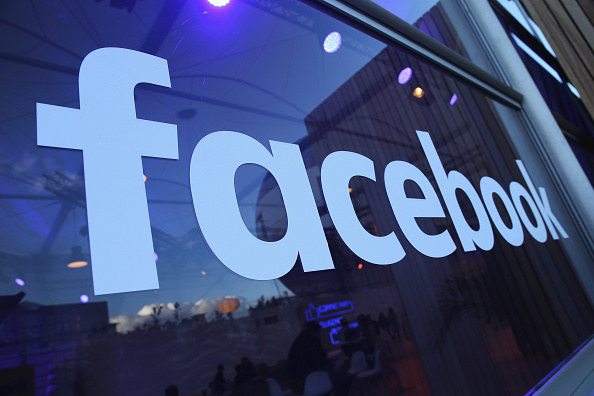Cancel culture is encroaching into the public health sphere, with Facebook removing information about COVID-19 and vaccines it deems erroneous and YouTube removing videos of U.S. Senate hearings on early home treatment for COVID-19 from a U.S. Senator’s YouTube channel.
On February 8, Facebook stated it is expanding its efforts to remove posts and paid ads about vaccines and COVID-19 that is not consistent with “leading health organizations” such as the World Health Organization, including on Instagram.
The announcement, made in a blog post, gave a detailed list of banned discussions, including content questioning the effectiveness and safety of COVID-19 vaccines, natural immunity, the severity of COVID-19, mortality rates, and whether social distancing is being ordered to promote 5G technology. Facebook also forbids discussion on cures or preventions for COVID-19, including the use of vitamins that could lead to “harmful self-medication.” Users are also not permitted to discuss the effectiveness of masks or discourage their use.
“We will begin enforcing this policy immediately, with a particular focus on Pages, groups, and accounts that violate these rules, and we’ll continue to expand our enforcement over the coming weeks. Groups, Pages, and accounts on Facebook and Instagram that repeatedly share these debunked claims may be removed altogether,” the post stated.
In a similar vein, YouTube removed the official videos of two U.S. Senate hearings on early, outpatient COVID-19 treatment committee from Sen. Ron Johnson’s (R-WS) channel. The videos are still searchable on the U.S. Senate Committee on Homeland Security and Governmental Affairs webpage. The videos’ removal led Johnson to write in an op-ed in the Wall Street Journal on February 2.
“The censors at YouTube have decided for all of us that the American public shouldn’t be able to hear what senators heard,” Johnson wrote in the op-ed.
In November, YouTube removed a video posted by Peter McCullough, M.D., one of the physicians who testified at one of the U.S. Senate hearings. The video featured a lecture by McCullough on his early COVID-19 protocol that was published in the American Journal of Medicine.
In December, Twitter announced it would remove posts on COVID-19 vaccines it deemed false.
Censorship Prolongs Virus
There is concern that big tech censorship could be prolonging the pandemic. Physicians say good health care thrives on an exchange of ideas.
“Commitment to science means a commitment to finding the truth,” Jeffrey Singer, M.D., a senior fellow at the Cato Institute, told Health Care News. “As such, that commitment should welcome challenges to prevailing wisdom on any matter of scientific inquiry. After all, there was a time when germ theory, or claims by Dr. Ignaz Semmelweis that doctors wash their hands between seeing and examining patients would prevent puerperal sepsis (‘childbed fever’), were considered pseudoscience.”
That lesson has been forgotten, says Jane Orient, M.D., executive director of the Association of American Physicians and Surgeons (AAPS) and policy advisor to The Heartland Institute, which co-publishes Health Care News.
“Censorship is suppressing early treatments [for COVID-19] that might have saved hundreds of thousands of lives, diminished the fear, and facilitated re-opening,” Orient told Health Care News.
Stopping Censorship: The Challenges
One challenge facing efforts to end big tech censorship is the rights of private companies to run their companies as they see fit, Singer says.
“Facebook, as a private social media platform, has the right to set the rules regarding what may or may not be posted on its platform,” Singer says. “And that includes fact-checking posts according to whatever criteria it chooses. If it was my social platform, I would place an asterisk next to all dubious posts and provide a link to critiques of the post’s assertions; then I’d let the reader decide.”
Orient suggests another approach.
“Facebook might as well say that it is permitting only postings that encourage mass vaccination without hesitation,” Orient said. “Who are its experts who evaluate the postings? They evidently think their customers are stupid enough to believe they could be turned into a monkey, so Facebook’s benevolent protection is needed.”
Orient knows well the uphill battle fighting big tech decision-making can be. In January 2020, before the COVID-19 pandemic, AAPS and a New York state resident filed a lawsuit against U.S. Rep. Adam Schiff (D-CA) for a letter he sent social media companies and posted on his official website telling them to be more vigilant against information that would discourage the public from getting vaccines. Orient said her organization was not anti-vaccine but supported informed consent. The suit, seeking a declaratory judgment that Schiff violated the plaintiffs’ First Amendment rights, was dismissed.
Orient says AAPS is considering legal action against Facebook for its new publishing policy.
AnneMarie Schieber (amschieber@heartland.org) is the managing editor of Health Care News.






















[…] a “Coronavirus information hub.” Another email showed Fauci to be in agreement with the idea. Facebook later banned posts questioning the origins of the COVID-19 virus, COVID-19 vaccine safety, COVID-19 mortality rates, […]